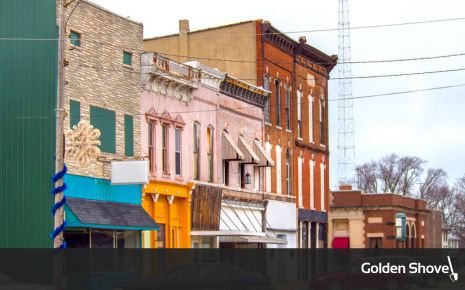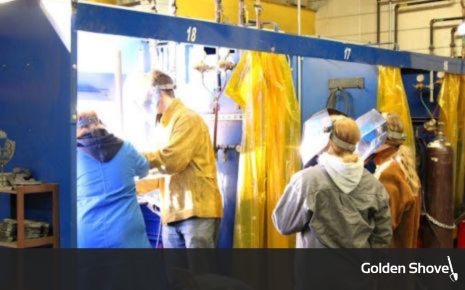Empowering Out-State Communities: Economic Development Strategies to Compete with Urban Areas

23 Sep 2024
News, Business Attraction, Quality of Life
Ah... the glitz and glamor of city life. The Hollywood-glamorized hustle and bustle, big dreams in a big city, fabulous encounters, one-of-a-kind experiences, amenities to die for... It's the stuff of movies and dreamers. But peek behind the curtain, and you'll find that urban life isn't all it's cracked up to be.
The Urban Illusion
Urban areas often come with significant drawbacks that can turn that glittering dream into a gritty reality. Think: bumper-to-bumper traffic, relentless hustle, overwhelming stimuli, questionable safety, a cost of living that devours one’s paycheck, hordes of people, and living spaces so tiny you could extend your arms and touch the parallel walls of your kitchen.
In contrast, non-urban areas offer a breath of fresh air - literally and figuratively. These often-overlooked gems are brimming with benefits that are increasingly attractive to both individuals and businesses. More and more people are recognizing the allure of outstate living, seeing it as an antidote to urban chaos. Non-urban areas offer a plethora of benefits that align with the desires of modern individuals seeking a more balanced life.
A Mission for Economic Developers
This is where economic developers (EDs) have an opportunity to shine, playing a crucial role in strategically highlighting and nurturing those benefits. For outstate communities, EDs wear multiple hats as advocates, storytellers, and strategists for their regions.
In an era of rapid urbanization, where big cities often steal the spotlight with their perceived opportunities, the charm of non-urban living can be overshadowed. But economic developers must be prepared to help shift this narrative. Their mission? To help outstate communities not only compete with urban areas, but to outshine them, showcasing a quality of life and opportunites that city dwellers didn’t even know they were seeking.
Small Towns, Big Opportunities
By leveraging the unique strengths of non-urban areas and addressing their challenges, economic developers can change the perception of non-urban living. Below, we explore 6 strategies to do just that:
- Highlight Quality of Life Advantages: Emphasize lower cost of living, spacious conditions, reduced stress, and strong community bonds. Promote access to nature, outdoor recreation, and a slower-paced lifestyle.
- Invest in Infrastructure and Remote Work: EDs should prioritize investments in high-speed broadband and transport links to attract remote workers. Creating tailored programs for digital nomads will position these areas as ideal hubs for remote work.
- Foster Entrepreneurship and Specialized Industries: Establishing business incubators and coworking spaces are a strong way to support local enterprises. Identify and nurture industries that can thrive in non-urban settings, such as sustainable agriculture, eco-tourism, artisanal crafts, or specialized technology sectors.
- Align Education with Economic Priorities: EDs should forge partnerships with educational institutions to create curricula that meet regional labor market demands, ensuring a skilled workforce for both current and emerging industries.
- Promote Cultural Assets and Regional Collaboration: Invest in local attractions, festivals, and events that showcase your region's unique character. Form partnerships with neighboring communities to pool resources, share best practices, and create a more robust regional economy.
- Attract Remote Offices and Satellite Locations: Encourage urban-based companies to establish satellite offices or retreats in your region, offering a change of pace for employees and potential cost savings for businesses.
A Bright Future for Outstate Communities
By reimagining non-urban living and effectively communicating its benefits, economic developers can help outstate communities not only hold their own against urban areas but offer a compelling alternative that resonates with modern values and aspirations. As more people recognize the benefits of non-urban living over urban chaos, these regions have the potential to become hubs of innovation, creativity, and quality of life.
More Topics





